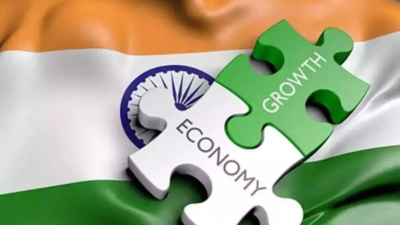India’s economy may grow 6.3% in FY26, 6.4% next fiscal: OECD

NEW DELHI: India’s economy is projected to grow by 6.3% in 2025-26 and 6.4% in 2026-27, the Organisation for Economic Cooperation and Development (OECD) said on Tuesday. It forecast global growth to slow to 2.9% in 2025 and 2026 due to substantial barriers to trade, tighter financial conditions, diminishing confidence, and heightened policy uncertainty.The projections by the Paris-based organisation showed that India will remain the fastest-growing economy among the G20 countries against the backdrop of global uncertainties. For India, the OECD trimmed the forecasts marginally. It said private consumption in India is supported by rising real incomes and lower personal income taxes. Investment will remain strong, bolstered by easing financial conditions. However, export growth is expected to moderate due to weaker global demand, the impact of higher tariffs, and heightened trade policy uncertainty.It stated that high merchandise export exposure to the US, which is India’s largest export market, increases the vulnerability of private investment to shifts in trade policy. “Tariff increases and broader trade tensions may dampen investor sentiment, particularly in export-oriented sectors such as chemicals, textiles, and electronics. However, the overall GDP effects will be limited by the moderate share of exports in GDP, with merchandise exports towards the US accounting for only 2.1% of GDP,” according to the OECD report.GDP growth in the US is projected to decline from 2.8% in 2024 to 1.6% in 2025 and 1.5% in 2026. In the euro area, growth is projected to strengthen modestly from 0.8% in 2024 to 1% in 2025 and 1.2% in 2026. China’s growth is projected to moderate from 5% in 2024 to 4.7% in 2025 and 4.3% in 2026.“The global economy has shifted from a period of resilient growth and declining inflation to a more uncertain path,” OECD secretary-general Mathias Cormann said. “Govts need to engage with each other to address any issues in the global trading system positively and constructively through dialogue,” said Cormann.





